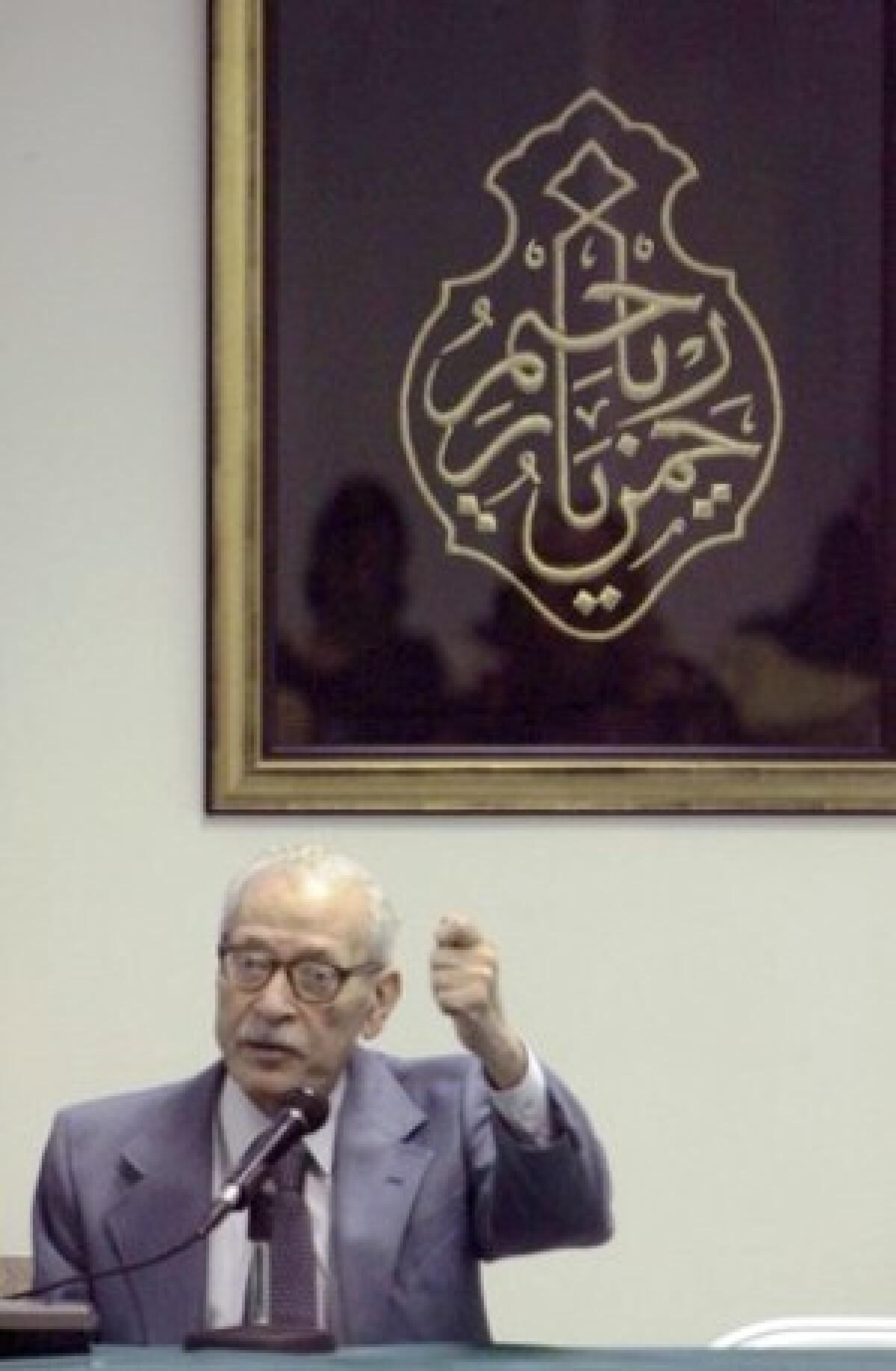Dr. Hassan Hathout dies at 84; Islamic leader fostered interfaith relations

- Share via
Dr. Hassan Hathout, a physician, medical ethicist and leader of the Southern California Islamic community who was at the forefront of efforts to demystify American Muslims and build interfaith bonds, has died. He was 84.
Hathout died of natural causes Saturday at his Pasadena home, said a spokeswoman for the Los Angeles-based Muslim Public Affairs Council, of which he was a prominent member.
He was also a leader of the Islamic Center of Southern California, where he coordinated outreach efforts for two decades. A well-regarded scholar, he wrote several books, including “Reading the Muslim Mind.”
“He was one of our giants in the history of Islam in America,” who urged Muslims to be “organically integrated in American society and not act as visitors” in it, Salam al Marayati, executive director of the Muslim Public Affairs Council, said Sunday.
In 1998 Hathout delivered a sermon at the first White House celebration of Eid al-Fitr, the day marking the end of the Muslim holy month Ramadan. Along with Rabbi Leonard Beerman of Bel-Air’s Leo Baeck Temple and the Rev. George Regas of All Saints Episcopal Church in Pasadena, Hathout also helped organize the Interfaith Center to Reverse the Arms Race, one of the first major inter-religious efforts in Los Angeles.
“As a physician he was so committed to life, he wanted to stand against anything that was going to obliterate life. He did that as a deeply religious person,” Regas said Sunday.
Hathout was born in Cairo on Dec. 23, 1924. The son of a schoolteacher, he was educated at the University of Edinburgh where he earned degrees from the Royal College of Surgeons and the Royal College of Obstetricians and Gynecologists. He also had a doctorate of philosophy in reproductive genetics.
He taught obstetrics and gynecology in Kuwait, where he lived for 26 years before immigrating to the United States in the late 1980s.
He quickly became involved in interfaith work in Los Angeles. With Beerman and Regas, he organized weekly prayer services for Muslims, Christians and Jews during the Persian Gulf War in 1991. The first service at All Saints in Pasadena drew more than 1,500 worshipers.
“We’ve lived together for centuries with mutual reserve and hatred,” he told the Daily News in 1991. “One of the positive things of the whole gulf crisis is that the three communities came together and discovered each other’s faith and scriptures are so similar.”
After 9/11, Hathout stepped up his efforts at bridge-building and called on Muslims to tone down anti-American rhetoric. He also spoke at Open Mosque Day, a program launched in 2002 in which more than two dozen mosques in Southern California invited non-Muslims to join in Islamic prayers, food and literature.
At one such event a few years ago, he told visitors that instead of classifying humanity by religion, he sought to view people in more basic terms: “those with a loving heart and those with a hating heart.”
“He had a wonderful heart,” said Dr. Omar Alfi, a physician and former chairman of the Islamic Center of Southern California, who knew Hathout for 60 years. “His main point was that religion is love . . . that humans are either loving or hating people irrespective of their religion.
“That was always a very important point for him.”
Hathout is survived by his wife of 56 years, Salonas; a daughter, Eba; a brother, Maher; and two grandchildren.
Burial will take place at 3 p.m. today at Rose Hills Memorial Park, 3888 Workman Mill Road, Whittier 90601. Visitation with the family is scheduled from 7 to 9 p.m. at the Islamic Center of Southern California, 434 S. Vermont Ave., Los Angeles 90020.
More to Read
Start your day right
Sign up for Essential California for the L.A. Times biggest news, features and recommendations in your inbox six days a week.
You may occasionally receive promotional content from the Los Angeles Times.







